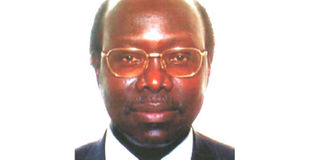Prime
Uganda @60: May God uphold thee

What you need to know:
- It’s lamentable and painful to note that some Ugandans now look back with nostalgia to the colonial period.
Uganda will celebrate its 60th anniversary of independence next Sunday, October 9. The theme chosen for the 60th anniversary of independence is, “October 9th: A Declaration of African interdependence and our shared destiny.” The national celebrations will take place at Kololo Independence Grounds in Kampala.
When Uganda achieved independence in 1962, I was a teenager and a student in Senior Two at Sir Samuel Baker School Gulu, which was the premier secondary school in northern region. I can compare and contrast Uganda Protectorate and post-colonial Republic of Uganda.
Sixty years is a long time in the life of a human being, but comparatively a short time in the life of a country. On September 7, Brazil celebrated the bicentenary (200 years) of her independence from Portuguese colonial rule. Singapore achieved independence on August 9, 1965, after 144 years of British colonial rule. Unlike Ghana, Kenya, Nigeria and Uganda, Singapore has developed from a Third World to a First World country in less than 60 years.
There are many important and pertinent lessons which Uganda and African countries can and should learn from Singapore. One of the reasons for Singapore’s rapid economic development was good, effective, focused, honest, selfless and visionary leadership with integrity personified by Lee Kuan Yew, its first prime minister.
Lee Kuan Yew did not condone and tolerate corruption, incompetence, nepotism and mediocrity. On the contrary, Singapore promoted meritocracy, ethical values and planning, especially in the public sector. His book, From Third World to First, the Singapore story: 1965-2000 is recommended and essential reading for African leaders.
Ugandans are God-fearing, law-abiding, peace-loving and tolerant people. Our national motto, “For God and My Country” enjoins us, especially our leaders, to make sure that whatever we do and say is acceptable and will give God the glory. Our lives must reflect and be evidence of our belief in God. Political power is a privilege to serve the people of God diligently, honestly and truthfully.
Power belongs to God and must not be used for personal gain, to deny Ugandans their rights and freedoms and to oppress fellow citizens. God will bless and uphold Uganda if we are committed to obey His commandments and do what will honour, please and give Him glory.
As Ugandans prepare to celebrate 60 years of independence it’s very sad, embarrassing and unacceptable to note that Uganda is not even a middle-income country, but is classified as a Least Developed Country (LDC) by the United Nations. There are many reasons to explain this national tragedy.
First, wrong national priorities. The correct national priorities of Uganda are education, agriculture and health. Parliament should allocate a minimum 35 percent of the national budget to these three sectors for 10 years if Uganda is serious and desirous to achieve middle-income status in the near future.
Second, the tendency to condone and tolerate endemic and systemic corruption and embezzlement on a massive scale by political leaders has caused Uganda to lag behind Kenya and Tanzania in economic development. According to Inspector General of Government Beti Kamya, about 30 percent of Uganda’s budget is stolen by selfish and unpatriotic politicians and senior civil servants.
The chords which bind Ugandans together, such as, common heritage, common interests and shared destiny must be enlarged and strengthened. Uganda must deliberately and systematically seek to build unity in diversity and respect the rule of law. It’s lamentable and painful to note that some Ugandans now look back with nostalgia to the colonial period. May Uganda, the land of freedom, enjoy peace and friendship with all her neighbours.
Mr Harold Acemah is a political scientist and retired career diplomat.




